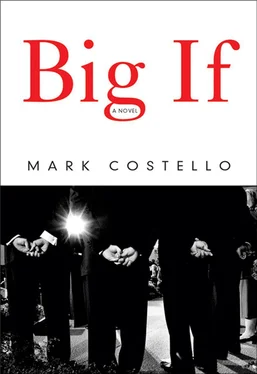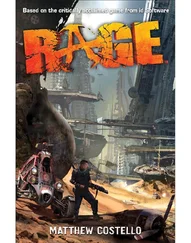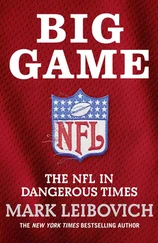Jens walked between abandoned ranches. The lot behind the school had become a lovers’ lane and the woods behind the lot had become a dump, a gully full of Clorox jugs, old tires, and tumbled appliances. Kids snuck over from the malls and got fucked up in the empty houses, listening to rap, white kids throwing gangsta signs, leaving their graffiti, Majorca! or Skitz is Gawd , starting little fires for warmth and fun, and house by house the tract was burning down. Other kids, looking for their friends, wandered up here too — Jens saw them in the afternoons. Worried parents followed, cruising in minivans around the dinner hour, pausing at a corner, window rolled down, listening for music above the highway drone. Sometimes the parents followed the music to the party house, and found other parents’ kids inside, kindling a fire, and kept searching. Cops arrived on noise complaints and called the firefighters. Portsmouth couldn’t leave this place alone, and this was strange to Jens — so strange, he came by once a day to see who else was here.
Jens went into the house across the street from the elementary school. The door was jimmied, splintered, and the living room was bare. He heard footsteps through the ceiling. A voice called down the stairs, “Freeze, motherfucker.”
Jens said, “It’s me.”
Vaughn Naubek said, “Come up.”
Jens found Naubek sitting on a milk crate in an empty bedroom, peering out the window at the corner of the school. Naubek wore his postal worker getup. He was eating a hickory-smoked Slim Jim. He offered Jens a milk crate.
Naubek said, “I’m fired.”
Jens said, “I know. I’m sorry, Vaughn.”
“We wrote that goddamn game. You and me, we wrote it.”
Jens said, “I know. It’s wrong, Vaughn. What else can I say?”
Naubek looked at a spot on the Slim Jim for a moment, then bit the spot he had been looking at.
He said, “First computer interfaced?”
Naubek was nostalgic for the old machines, the lost technology of his childhood.
Jens said, “Hex 1000. You?”
“3000 Turbo.”
“Lucky dog.”
“My dad worked for the IRS in Kansas City and I snuck into the office to play on the mainframe. The Turb was a helluva machine. First program written?”
“JENSISNUMBER1.exe. It displayed the text string ‘Jens is Number 1.’”
“With how many exclamation points?”
“Forgotten. Numerous.”
“First modem used to access first computer?”
“Slow acoustic coupler, three hundred bips at best. Big padded cups where you fit the phone.”
“Number of times you licked said padded cups?”
“Once. It tasted like a vinyl chair.”
“Number of times you licked a vinyl chair?”
“None that I remember, yet I seem to know the taste.”
“Number of times you put your dick in the padded cups?”
“Zero. You?”
“One. Pops caught me in the IRS computer room, pants around my ankles, cock enmodemed. Man, was he unhappy. Taxed my allowance down to nothing. But it was worth it, Jens. My cock felt good in there.”
Jens shifted on the crate. “Is that a real gun, Vaughn?”
“Which one?”
“The big one in the corner by your night-vision headwear.”
“True,” said Naubek.
“What about the pistol in your belt?”
“No, Jens, it’s a Pez dispenser.”
“May I have a Pez?”
Naubek reached into his pocket and tossed a roll of Pez to Jens. Jens took a Pez and tossed the roll back to Naubek. Jens bit and Naubek sucked.
Jens said, “That’s not a Pez dispenser, Vaughn. What are the guns for?”
“Why do they have to be for anything, Jens? Why can’t they just be ?”
The windows were sheet plastic and the room was cold. A van passed on the street below, kids getting out of school going off to party in one of the houses.
Jens said, “Should I call the cops or something?”
“You mean, am I a workplace rampage shooter on the verge? Shit, I wouldn’t waste a bullet on those people, Meredith and them. They think they’re so great. They think they’re running a big system. Well they don’t know a fucking thing. When I worked at NASA, I helped design the telemetry package on the shuttle Columbia . Everything redundant, triple backups, bang-paths on the motherboard— that was engineering, man. I wept the day she blew the O-ring.”
“Aren’t all rings pretty much an O?”
“ Ring is the backup word in case you miss the O ,” Naubek said. “That’s what I mean about NASA — they even had redundant words . God, I miss those days.”
Naubek pretended to be interested in his shotgun suddenly, hiding his wet eyes.
Jens stood. “Think I’ll take a spin and clear my head. It’s been a real shitty day so far.”
“Excuse me, can I help you?”asked the lady at the front desk.
Jens said, “I’ve come to get my son.”
There was a rule at Li’l People Montessori: parents or caregivers were not allowed to go into the classroom areas when they came to get their children. Some kids were in the half-day program; some were nine-to-three; others were in full-day, which ran until six. Parents or caregivers would disrupt the classes, coming and going all day long. This had been explained in a letter from the school. Jens hated the letters from the school, the cool and therapeutic tone.
“You can’t go in there,” said the woman. She came around the desk. She barred the classroom door with a flabby arm.
Jens said, “I want my son. His name is Kai. He’s in the full-day.”
It was around noon. Jens was here six hours early.
The woman looked at Jens. “Are you all right?”
Jens saw Kai in the corner of the classroom, one head in a flock of heads watching as the teacher fed the goldfish, and explained.
Jens drove along 1A,down the rocky shore, generally home. Kai was clapping in his crash seat.
Jens felt better, driving home from Li’l People. The curving roadway straightened out his thinking. No, it was more — the road was speaking to him, a cliché come true, the white broken line, the lane divider, stretching to forever. Speeding up, he turned the faster-passing dashes into dots, slowing turned them back to dashes, and for a moment he was a hammer kid again, reading dots and dashes, writing with the stylus of speed. Other drivers honked and waved, but he didn’t care.
Kai was laughing. “We’re driving crazy!” he told the other cars. “Poppa, this is fun!”
Jens’ life descended into code. Three dashes made the letter O. As he slowed, the road was saying OOOOOOOOOOOOOOOOO . Three dots were the letter S, four dots made the letter H. Speeding up, the road was saying SHSHSHSHSHSHSH.

“We want sea views,not swamp views, and I don’t care if it’s technically a marsh and part of the overall tidal ecosystem, because as I’ve told you, Peta, told you many times, that does not make it a sea view.”
Lauren Czoll was standing on the wraparound terrace behind the manor house at the Silence Bell estate, homesteaded on Indian land in 1646, and priced to move at a million two. Lauren had just come from her daily boxing workout. She wore a cashmere warmup suit, soft and gray as dawn, black lace-up boxing shoes, and a mustard coat, the latest from New York, abstract outerwear, a yellow parallelogram.
“Would you like to see the kitchen?” Peta asked.
“No,” said Lauren, “I would like to see the sea .”
She was skittish as a colt and twice as pretty, Peta thought. Jerzy Czoll, Lauren’s husband, BigIf’s CEO, was sitting on nine million option warrant units of unrestricted BigIf common stock. When the game went IPO, if it ever did (Peta was starting to lose faith), Jerzy would become an instant millionaire or billionaire of whatever magnitude and this pretty colt would become, thereby, an instant Mrs. — illionaire. As such, Lauren Czoll was someone to be coddled at all costs. As they stood on the patio, looking down the valley at an arm of silver marsh, Peta thought the cost was getting pretty high.
Читать дальше













